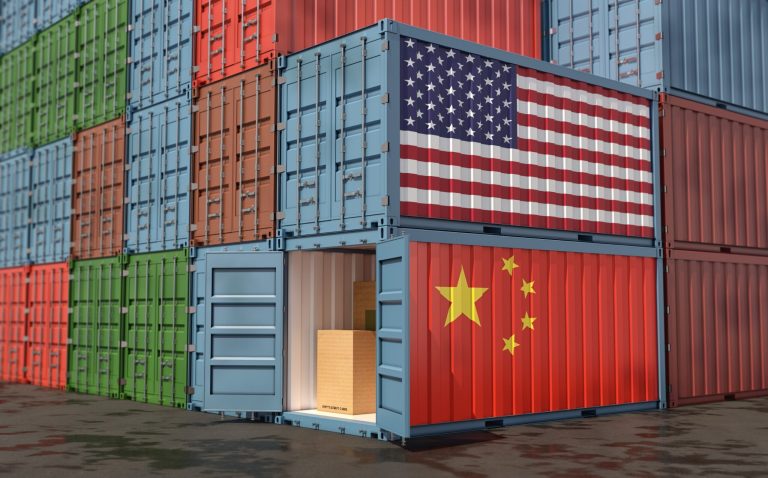In a significant, albeit discreet, policy adjustment, China has reportedly created a list of specific US-made products eligible for exemption from its steep 125% retaliatory tariffs.
According to a report in Reuters, Beijing is quietly notifying select companies about the existence of this “whitelist”, rather than making a public announcement, according to two sources familiar with the situation, who requested anonymity due to the sensitive nature of the information.
This signals a growing concern about the economic consequences of its protracted trade war with Washington.
This behind-the-scenes approach allows China to offer targeted relief to its industries while maintaining its firm public stance.
Officially, Beijing has consistently stated its readiness to endure the trade conflict unless the US retracts its own significant tariffs (reportedly as high as 145% on some goods).
However, the creation of an exemption list suggests a pragmatic recognition of the economic pain rippling through the country.
The existence of such a “whitelist,” where specific goods are pre-approved for exemption, had not been previously reported, although Reuters did report on Friday that China was asking firms to identify critical goods needed levy-free, following earlier exemptions granted for select items like pharmaceuticals, microchips, and aircraft engines.
Targeted relief: notifications and growing list
The exact scope and contents of the exemption list remain unclear, as it has not been made public by the authorities yet.
Instead of a broad declaration, companies are being contacted privately by government authorities and informed about product classifications eligible for tariff waivers.
According to the report, one source, working at a pharmaceutical company reliant on US technology for some products sold in China, confirmed their company was contacted by the Shanghai Pudong government on Monday regarding the list.
The source noted the firm had previously lobbied for exemptions. “We still have many technologies we need from the US,” Reuters reported quoting the person who also highlighted the practical need for certain American imports despite the ongoing trade dispute.
Another source indicated that some companies are being advised to privately inquire with authorities to determine if their specific imported products qualify for inclusion on the exemption list.
The report further stated that as per the evidence, the list of exempted goods may be expanding.
On Tuesday, Reuters reported that China has also waived tariffs on crucial imports of ethane, a petrochemical feedstock, from the United States.
Major ethane processors had previously sought these waivers, given that the US is effectively the sole viable supplier for their needs.
Economic pressure prompts pragmatism
These quiet concessions underscore the significant economic pressures China faces.
Weak domestic demand, a consumer sector yet to fully recover post-pandemic, and broader deflationary concerns create a challenging environment exacerbated by the trade war.
While Beijing encourages tariff-hit exporters to pivot domestically, companies report difficulties with lower profits and less reliable demand in the local market.
Offering targeted tariff exemptions provides a more direct mechanism to support struggling industries and maintain critical supply chains.
This mirrors steps taken by Washington, which also granted exemptions for some Chinese goods, acknowledging the reciprocal nature of trade war pain.
Gauging the fallout: government surveys businesses
Beyond granting exemptions, Chinese authorities are also actively trying to quantify the trade war’s impact.
In the report, two separate sources confirmed that the government is surveying companies to gauge the effects of the tariffs.
Authorities in Eastern China recently met with a foreign business lobby group, asking them to “communicate all critical situations caused by tariff tensions to evaluate specific cases,” according to one person with direct knowledge.
Similarly, officials in the major port and manufacturing city of Xiamen reportedly sent out surveys on Sunday to electronics and textile firms, inquiring about their US trade activities and the estimated impact of both US and Chinese tariffs on their businesses.
While these internal assessments and quiet exemptions proceed, the broader trade narrative continues.
US President Donald Trump remarked on Tuesday that he believed a trade deal with China was achievable, adding, “But it’s going to be a fair deal.”
China’s commerce and customs ministries did not provide immediate comment when contacted by Reuters.
The discreet nature of the exemption process highlights Beijing’s complex balancing act between projecting strength and addressing pressing economic realities.
The post China crafts secret ‘whitelist’ for US tariff exemptions: report appeared first on Invezz

